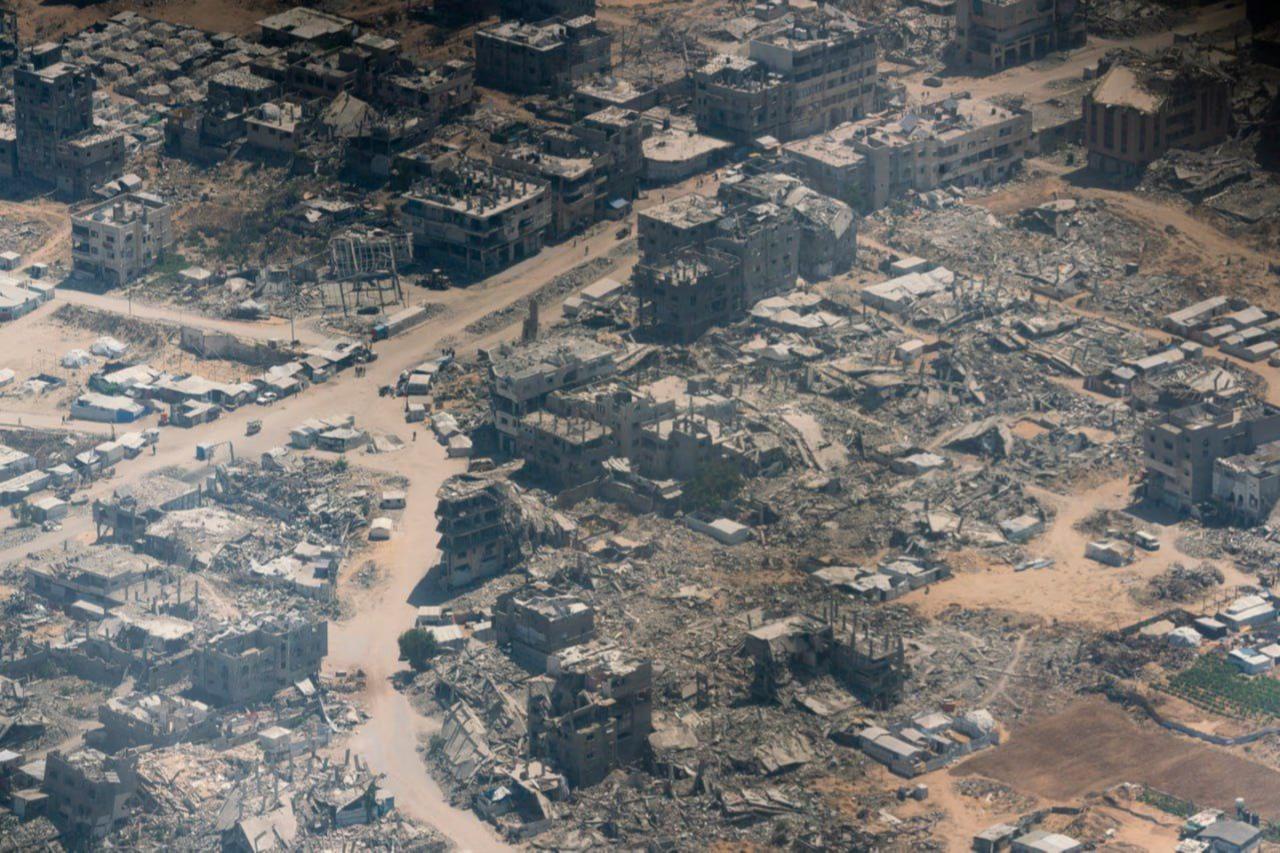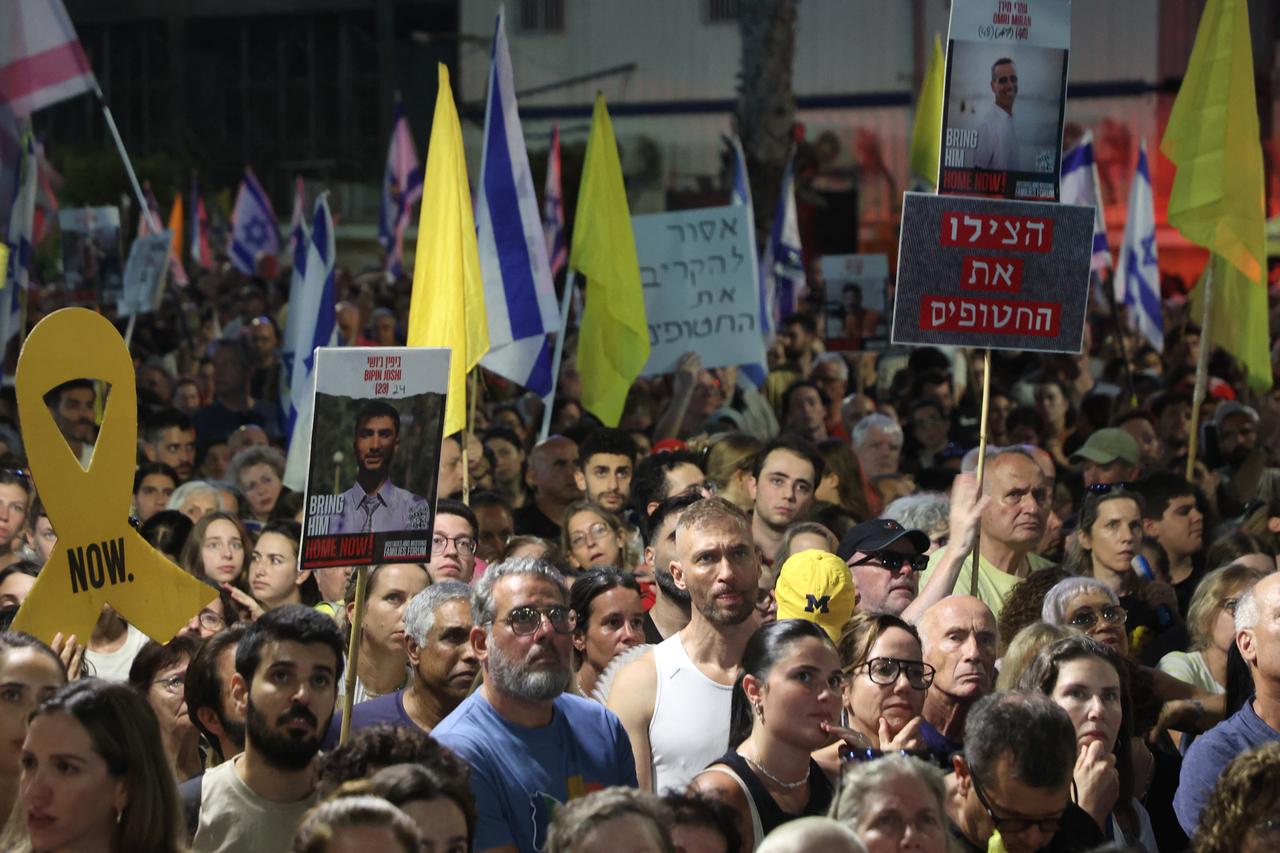
The term “genocide” evokes strong responses in Israel. For most Israelis, genocide means the Holocaust, that is, the genocide of the Jews by the Nazi regime. To be sure, if pressed, many Israelis will concede that other genocides happened before and after the Holocaust. But then they will generally argue that the Holocaust was unique and therefore cannot be compared with any other genocide.
What is very difficult, indeed often impossible, for most Israelis, even those who are critical of Benjamin Netenyahu’s government and would like to see an end to the war in Gaza, is to recognize the genocidal aspects of Israeli actions in Gaza. Such a designation is experienced as a turning of the tables, a reversal of historical logic, an affront to the Israeli sense of who they are and to the very essence of the state of Israel, its national identity, and Zionism. As one colleague said to me, if instead of using the word genocide to describe the war in Gaza one used the term “retsah am,” which means literally “murder of a people” – an accurate translation of the term genocide, just like the German term Völkermord – people would be less likely to reject this designation offhand.
Why is the designation of the war in Gaza as a genocide such an anathema in Israel? Is it because Israelis are generally not exposed to the horrors in Gaza on their own media outlets? Or because of a careful examination of the available facts and an accounting of whether they fit the definition of the crime of genocide in the United Nations convention of 1948? In my view, this outright rejection of the term in the result of neither lack of facts nor of rational consideration. For most Israelis, while they might agree that other mass atrocities in the modern era can be called genocide – at least as long as they are not compared with the Holocaust – speaking of an Israeli genocide threatens to undermine the very basis on which the state was founded and the purpose of its existence. Israel was established in 1948, the same year that the genocide convention was adopted by the United Nations, and for a similar reason, that is, as a response to the crimes of the Nazis, and most crucially, to the genocide of the Jews. The very thought that eight decades later Israel would be conducting its own genocide is thus perceived as depriving it of its very raison d’etre, its most fundamental logic of existence.
This denial is all the more pervasive in view of the Hamas’ October 7 attack. While Israelis will quibble endlessly about how to define the destruction wrought by the IDF on Gaza (war crimes, crimes against humanity, ethnic cleansing), no one will question for a moment how to characterize what Hamas had done. The shock and traumatic effects of that attack, which in the minds of many Israelis justified a brutal attack on Gaza in return, makes speaking of an Israeli genocide in Gaza appear like blaming the victims and supporting the enemy. This manner of thinking is all the more ubiquitous because generations of Israelis have been raised on a particular perception of the Holocaust, not as an event to be simply remembered and commemorated, but as a clear and present danger of yet another genocide of the Jews.
As many Israelis said and wrote after October 7, they experienced the massacre of Israeli civilians as another Holocaust. The terror of that event and the urgent desire to wipe out the danger it presented, appeared to give the state license to respond with all its destructive might. And while Hamas, whatever its intentions were, was in no position to perpetrate genocide against the Jewish population of Israel, the IDF, with hundreds of thousands of soldiers, vast quantities of modern war machines, and an endless supply of munitions by its allies, was and remains very much capable of destroying the Palestinian population in Gaza, in whole or in part, as such.

This mechanism of licensing genocide is not new. Indeed, every state and organization that has carried out genocide in the modern era, starting with the German genocide of the Herero and Nama peoples in 1904 to the Nazi genocide of the Jews and beyond, saw itself as the victim, and perceived its victims as threatening savages and subhumans, insidious internal enemies and polluters of the nation not deserving any right, not even the right to life. There is nothing more liberating and intoxicating than exercising limitless violence against another group when armed with a sense of total self-righteousness that feeds and legitimizes an urge for cruel revenge.
As a result of this mechanism, the horrors perpetrated on the other group are never ascribed to those who inflict the violence, but to the enemy, according to the logic that “they” started it (by a massacre, a revolt, resistance to oppression), and that therefore “they” are guilty of the massacres that we are perpetrating on them. And once the bodies pile up, and the horror is there for everyone to see, the fear that things may yet turn around, that one day this enemy, upon whom genocide was perpetrated, might seek revenge for what we had done to it, provides the perpetrators with an even greater urge to wipe them out altogether, so that not even their children would live to avenge the destruction of their people.
This is the trap of nations that build their national identity and self-justification on a memory of catastrophe, a powerfully maintained and transmitted memory of genocide. Sooner or later, the collective existential fear and paranoia that is instilled in one generation after another will block the nation’s ability to clearly perceive its circumstances and reality, blinded as it will be by fear and rage. Without trust in the potential of humanity not only for murder and mayhem but also for peace and reconciliation, a nation raised on the memory of its own genocide is always threatened by drowning itself in an ocean of blood.
In Israel, there were those who warned against this view, those who could see the self-fulfilling aspects of such prophesies of doom rooted in a past of destruction. But once the extremists took over the reins of government, they have been able to tap into the darkest recesses of the nation’s fears and anxieties, including among many of their political opponents, and to propel them toward a war of destruction meant to eradicate Palestinians, but also to radically transform Israel into an authoritarian, halachic, messianic, apartheid state that would turn not only on Palestinians but also on any opposition it might encounter from its own Jewish citizens.
From this perspective we may be able to say that by placing the Holocaust at the heart and root of Israeli identity, Israel and its people have secured not their safety from genocide and tyranny but rather their inevitability.
The views expressed in this article are those of the author and may not reflect the editorial policy of Türkiye Today. The article was first published by Fokus+.